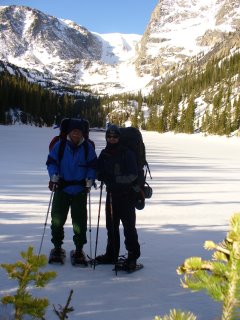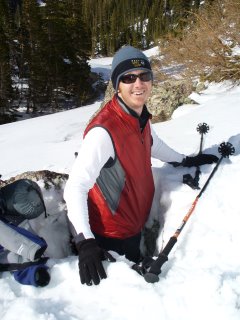I have survived my trip. Updates to come this week. Here is May's newsletter.
To the Saints in Christ Jesus at Drakes Branch Baptist Church,
I want to tell you how much I have benefited from our services on Wednesday nights. Our time together in prayer is refreshing as we cast our burdens on the Lord; while our time together in the Word is satisfying as we plumb the depths of the revelation of God. As most of you are aware we are currently examining the splendor of the cross: trying to understand the justification behind it, the impact of it and the love and justice that cover it. Such an investigation has demonstrated to me the vastness of this beautiful doctrine. In fact, this week I listed all the biblical terms used to describe the work of the cross that came to mind:
1) Salvation: Rom 1:16
2) Forgiveness: Eph 1:7
3) Justification: Rom 5:18
4) Sanctification: Rom 6:22; Phil 2:12
5) Glorification: Rom 8:30
6) Redemption: Col 1:14
7) Atonement: 1 Peter 2:24
8) Reconciliation: Rom 5:11
9) Adoption: Rom 8:15
10) Penal substitution (Substitutionary/ vicarious atonement): Rom 5:8
11) Propitiation: Rom 3:25; 1 John 4:10
12) Expiation: John 1:29; Heb 9:26-28
13) Ransom: 1 Tim 2:6; Mark 10:45
14) Regeneration: 1 Peter 1:3; John 3:3
15) Sacrifice: Heb 9:26
16) Mediation: 1 Tim 2:5; 1John 2:1
17) Imputed righteousness: 2 Cor 5:21
18) Purified/cleansed/washed: 1 Cor 6:11
19) Satisfaction: 1 John 2:2
20) Rescue/release: Rom 6:20-22
21) Transfer: Col 1:13
22) Deliverance: Rom 4:25; Gal 1:4; 1 Th 1:10
23) Canceling debt: Col 2:14
24) Recreation: 2 Cor 5:17; Gal 6:15
25) Passover: 1 Cor 5:7
Certainly, you can see that we could spend scores of Wednesdays trying to uncover the teachings our Scriptures offer concerning the cross of Christ. One passage in particular I read this week is Hebrews 10. Verse 1-3 reads:
For since the law has but a shadow of the good things to come instead of the true form of these realities, it can never, by the same sacrifices that are continually offered every year, make perfect those who draw near. Otherwise, would they not have ceased to be offered, since the worshipers, having once been cleansed, would no longer have any consciousness of sin? But in these sacrifices there is a reminder of sin every year.
We can see that one of the roles of the old covenant sacrificial system was to remind the people of Israel of their sin, and consequently their need for salvation (Gal 3:24). One commentator writes, “[the sacrificial system] is like a sledgehammer to the human spirit, pounding away year after year with its constant battering away at the theme of sin. In other words, it doesn’t work to heal; it works only to drub it into us that we are sinful, sinful, sinful and unacceptable to God.”
Praise God that we have the great fortune to live this side of the cross; that we are not called to repeatedly cast our gaze on our own sinfulness, but rather let our eyes fall upon the mercy of God (Phil 3:13-14). Nevertheless, unfortunately sometimes Christians, churches and pastors abandon this great reality and are better at reminding us that we are transgressors than that God is gracious. They hound people that they don’t measure up. Repeatedly people are reminded that they don’t give enough, pray enough, study the Word enough, witness enough, serve enough, care enough, praise enough … it’s never enough. The worshippers are just beat down with a sense of inadequacy. Over and over again they will make their “offerings” but they are never adequate. Consequently they keep their distance from God, leave services with guilty consciences and come back next week “with another basket of good intentions and deeds to place on the altar – or they stay away altogether” (Thomas Long).
It is of course easy to fall back into the old covenant way of thinking, constantly reminding us of our sinfulness. Nonetheless, this moralism or, as I like to call it, this “do-betterism” has no place in the shadow of the cross. Rather than harping on our sinfulness (although this must never be ignored) let us be a church that holds up Christ, our beautiful and glorious king: and let the majesty of this crucified yet living savior draw all people to himself (Jn 12:32).
May God grant that we may relentlessly seek him this month. I hope to see you on Wednesday nights as God continues to serve our souls through his living and abiding word.
Your brother in Christ
Steven

 AND I loved every minute of it (well ... most minutes). What I saw for five days, I will take with me always. The majesty of our God is unimaginable. Why put yourself through something like that, you might ask. What drives me is that God created these mountains, trees, lakes and streams for a reason. To display his glory. To show he is powerful and majestic and wonderful. It is almost as if there is an additional book of the Bible up in these mountains that declares how great God is. I am willing to work a little bit in order to get a chance to read it (of course it helps that I love the challenge too).
AND I loved every minute of it (well ... most minutes). What I saw for five days, I will take with me always. The majesty of our God is unimaginable. Why put yourself through something like that, you might ask. What drives me is that God created these mountains, trees, lakes and streams for a reason. To display his glory. To show he is powerful and majestic and wonderful. It is almost as if there is an additional book of the Bible up in these mountains that declares how great God is. I am willing to work a little bit in order to get a chance to read it (of course it helps that I love the challenge too).







